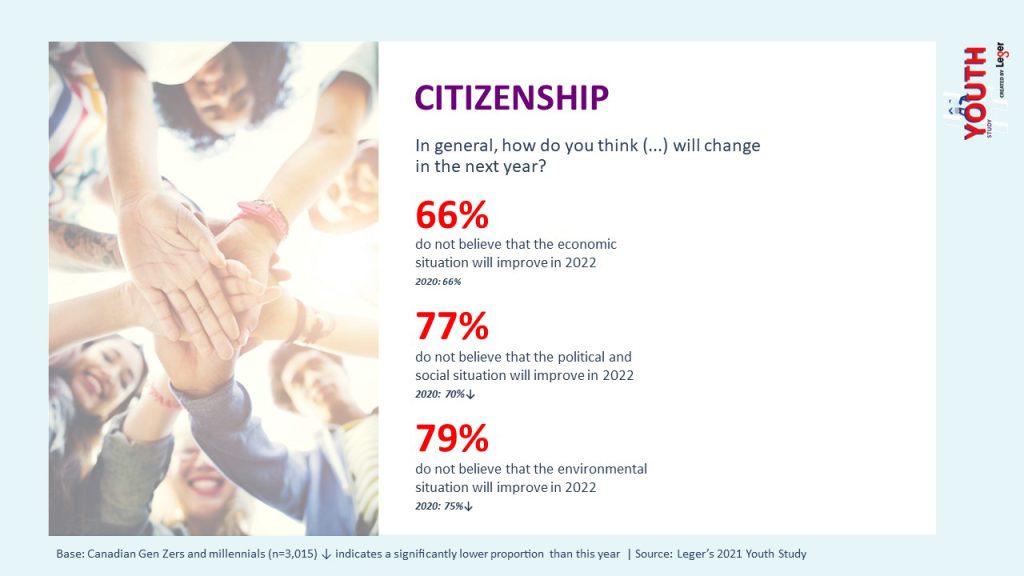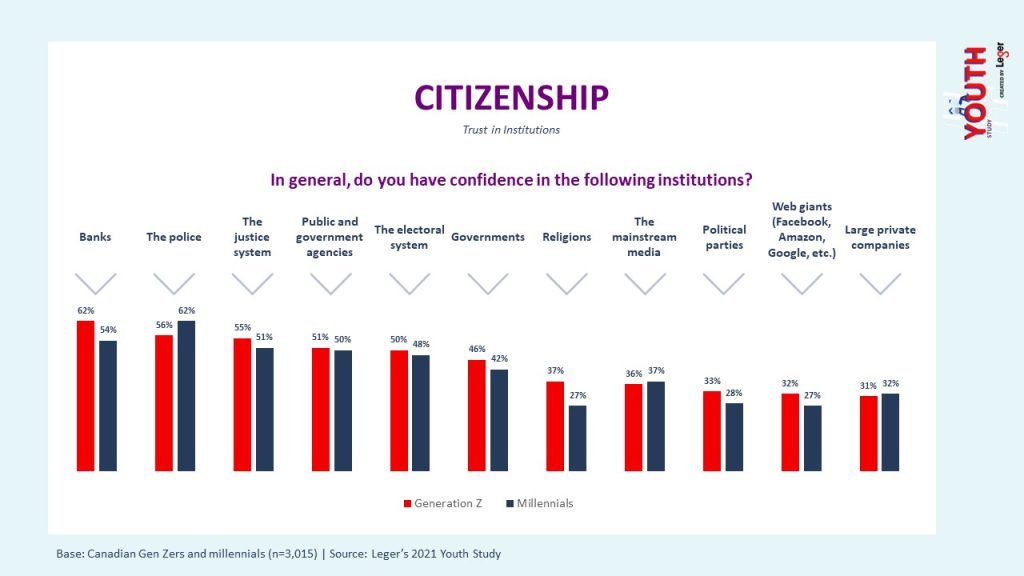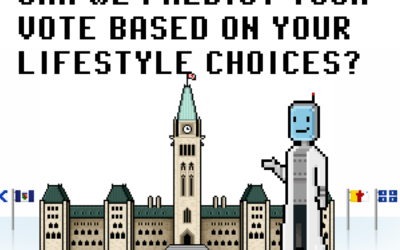“Each generation is a new people,” the saying goes. It is these new people with distinct values and concerns that the Youth Study examines year after year to help organizations better understand and relate to the younger generations.
As our surveys show, generational affiliation is often the most compelling factor in determining behaviour, which is why the Youth Study is an essential tool for organizations.
The first section of our analysis focuses on the citizenship of the younger generations at the beginning of 2022. Based on fifteen questions, it attempts to define what it means to be a young citizen.
The Future Crisis
Whether they belong to Generation Y or Z, young citizens express real fear about their personal and collective future. This is one of the major findings of our study. In the context of a pandemic, this “generational pessimism” is getting worse every year. 66% believe that, despite a difficult year in 2021, the Canadian economic situation will not improve in 2022. It’s not much better for their personal finances: 62% do not believe their personal finances will improve in 2022, although their young age means that each year marks a potential increase in their socio-economic status. Many (53%) fear a potential decrease in their socioeconomic status, i.e., that they will be poorer than their parents during their lifetime. Therefore, it is not surprising that 56% of Generation Y and Z feel they are part of a disadvantaged generation compared to other generations.
Socially and environmentally, the situation follows the same trend. 77% do not believe that the political situation in Canada will improve in 2022, while 79% feel the same about the environmental situation.

We are looking at two young generations that are both worried and resigned about how the world will improve in the short, medium and long term. Of course, this has implications for how Zs and millennials view the job market and spending. Young citizens need to believe in what they are doing and buying.
Lack of Confidence in Institutions
A lack of confidence in institutions accompanies pessimism about the future.

At the bottom of this list, confidence in large corporations stands at only 32%, even though a majority work there. Confidence in governments stands at only 43%. Unlike the baby boomers, who embraced existing institutions to get rich and live a comfortable life, the younger generations do not feel that institutions can improve their situation. The erosion of their confidence in institutions further demonstrates that for Zs and millennials, the various institutions can hinder their development. They are seen as too cumbersome, too hierarchical, and, for many, a source of inequality and discrimination.
For any company, public or private, this lack of confidence can be a starting point for reflection. Inevitably, the younger generations will interact with institutions, whether as employees, consumers or voters. At this point, they will have to understand that it is by investing in these large structures that they will be able to improve a world they do not really trust. The young citizens of 2022 want to improve their situation and their world, but they fear the future and don’t know where to start.
ABOUT THE YOUTH STUDY
This is the 4th edition of the Youth Study, created by Leger. The Youth Study surveys two generations: millennials, aged 26 to 40, and Generation Z, aged 13 to 25. It enables us to analyze the behaviours and values of young people at the beginning of the year 2022. This edition attempts to answer the question: What does it mean to be a young person in 2022? To answer this, we have analyzed what it means to be a young citizen, worker and consumer in 2022.
READ OUR OTHER ARTICLES
Millennials, Gen Z and the Labour Shortage: Flexibility Is Key
Consumer Behaviour: Millennials and Gen Z Are Demanding and Efficient



